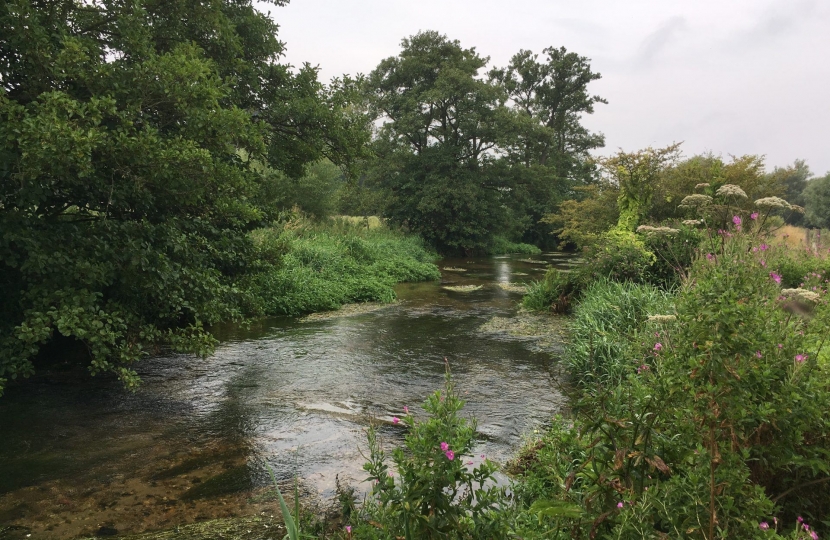
 It’s incomprehensible that untreated sewage flows into rivers across our country. Collectively, we all want this to stop. However, we need to ensure we have a pragmatic discussion about how we achieve this.
It’s incomprehensible that untreated sewage flows into rivers across our country. Collectively, we all want this to stop. However, we need to ensure we have a pragmatic discussion about how we achieve this.
 At its heart, the problem stems from decisions made when the infrastructure was built, back in the 1950’s when the water boards were state-owned and run by the Government. Bureaucratic planners made the decision to allow surface water into the sewerage system. With flow rates at the time, this made sense. However, intensive population growth and urbanisation has caused this to become unworkable.
At its heart, the problem stems from decisions made when the infrastructure was built, back in the 1950’s when the water boards were state-owned and run by the Government. Bureaucratic planners made the decision to allow surface water into the sewerage system. With flow rates at the time, this made sense. However, intensive population growth and urbanisation has caused this to become unworkable.
 Currently, 97% of sewerage discharge into rivers is actually rainwater.
Currently, 97% of sewerage discharge into rivers is actually rainwater.
 The cost of fixing this problem is roughly £600bn. To put this into context, the Government has spent £400bn on its response to covid.
The cost of fixing this problem is roughly £600bn. To put this into context, the Government has spent £400bn on its response to covid.
 So, the first step has got to be to require water companies and the Environment Agency to publish data on storm overflow operations for public inspection. Thereafter they (and the government) must set out the actions needed to eliminate storm overflow with the costs and benefits of those actions.
So, the first step has got to be to require water companies and the Environment Agency to publish data on storm overflow operations for public inspection. Thereafter they (and the government) must set out the actions needed to eliminate storm overflow with the costs and benefits of those actions.
 Last week I voted to make these legal duties as part of the Environment Bill. We need clear information on the feasibility and cost of elimination before we impose a legal requirement on water bill payers to fund the work. Although the work will be done by the water companies, it will be all of us paying for it, and I want to know the scale of these charges and how they can be managed over time, before passing the law that orders the work. This is why I disagreed with last week’s Amendment 45. It articulated what we all want – to stop these discharges – but it failed to identify how.
Last week I voted to make these legal duties as part of the Environment Bill. We need clear information on the feasibility and cost of elimination before we impose a legal requirement on water bill payers to fund the work. Although the work will be done by the water companies, it will be all of us paying for it, and I want to know the scale of these charges and how they can be managed over time, before passing the law that orders the work. This is why I disagreed with last week’s Amendment 45. It articulated what we all want – to stop these discharges – but it failed to identify how.
 I am very aware that the money needed to fix this long term problem of shared sewers will come from all of us as consumers of water. Right now, the last thing we need is another consumer price shock. Already, between 2020 and 2025, water companies will invest £7.1bn on environmental improvements in England.
I am very aware that the money needed to fix this long term problem of shared sewers will come from all of us as consumers of water. Right now, the last thing we need is another consumer price shock. Already, between 2020 and 2025, water companies will invest £7.1bn on environmental improvements in England.
 In my role on the Environmental Audit Select Committee, I will be working closely with colleagues on all sides of the House to ensure we address this issue properly, and put forward pragmatic solutions to protect our waterways in Broadland; Norfolk and across the English countryside.
In my role on the Environmental Audit Select Committee, I will be working closely with colleagues on all sides of the House to ensure we address this issue properly, and put forward pragmatic solutions to protect our waterways in Broadland; Norfolk and across the English countryside.
 This is a long term problem with no quick fix but I am really pleased that the Environment Bill is finally grasping the nettle and forcing change.
This is a long term problem with no quick fix but I am really pleased that the Environment Bill is finally grasping the nettle and forcing change.

